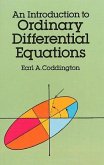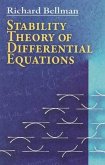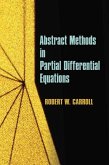Incorporating an innovative modeling approach, this book for a one-semester differential equations course emphasizes conceptual understanding to help users relate information taught in the classroom to real-world experiences. Certain models reappear throughout the book as running themes to synthesize different concepts from multiple angles, and a dynamical systems focus emphasizes predicting the long-term behavior of these recurring models. Users will discover how to identify and harness the mathematics they will use in their careers, and apply it effectively outside the classroom.
Hinweis: Dieser Artikel kann nur an eine deutsche Lieferadresse ausgeliefert werden.
Hinweis: Dieser Artikel kann nur an eine deutsche Lieferadresse ausgeliefert werden.








